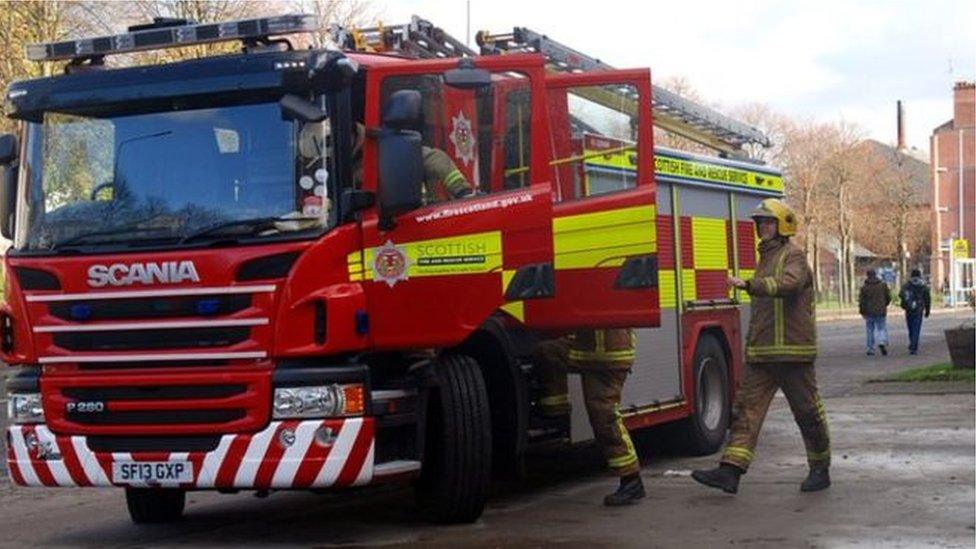Fire stations to close, says leaked document
- Published
- comments
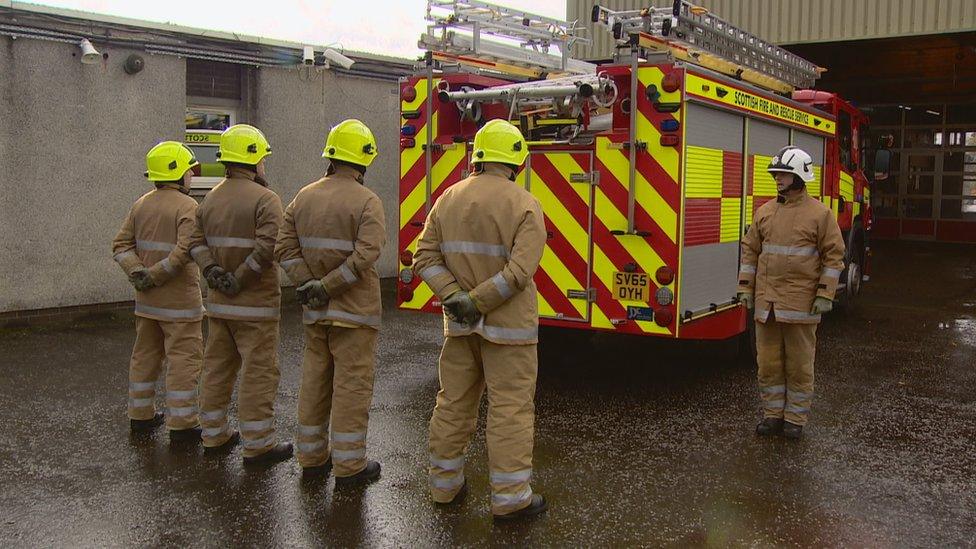
Fire stations are to be closed and firefighter numbers cut, according to documents seen by the BBC.
Papers circulated to senior Scottish Fire and Recue Service management said the current model could not last beyond the end of the financial year.
The Fire Brigades Union Scotland told the BBC that dozens of fire engines were already unusable because there were not enough crews to take them out.
In response, Scotland's fire chief said the service needed to be "transformed".
Alasdair Hay was responding after management documents leaked to the BBC talked of reducing urban fire stations and cutting firefighter numbers.
Mr Hay said rural areas were having a serious problem recruiting on-call "retained" firefighters.
But he said there could be a case for part-time on-call firefighters to work out of urban fire stations.
About two-thirds of Scotland's 356 fire stations are in rural areas and crewed by retained duty system (RDS) staff.
Many of these fire crews are unavailable during the day because they have other jobs.
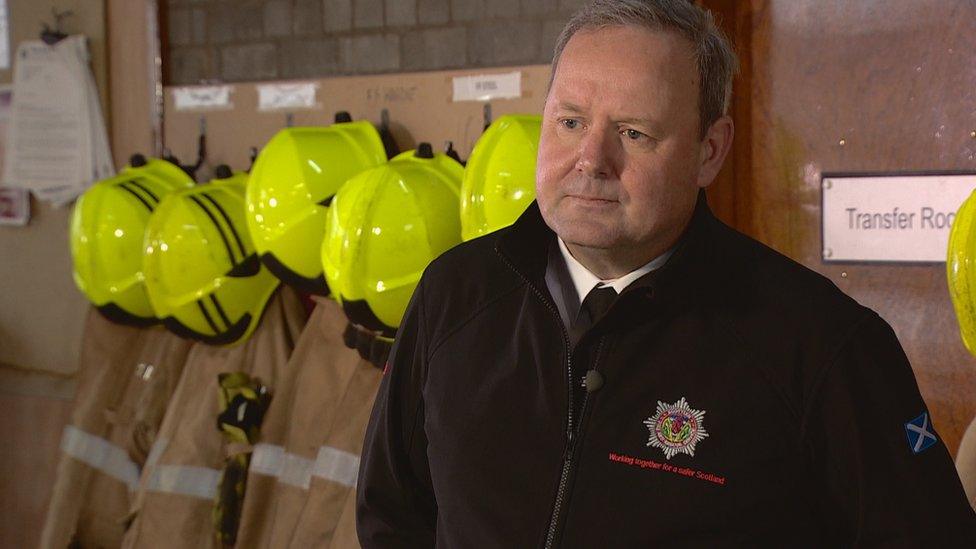
Alasdair Hay said the service needed "planned and safe" change
Mr Hay said this had led to between 60 and 100 fire appliances sitting idle each day as they did not have the four crew members required to operate them.
The Fire Brigades Union Scotland said the same problem also happened in five or six full-time fire stations each day.
Mr Hay said the aim was to look at the "collective resource" across the country and work out the best balance of full-time firefighters and on-call retained crews.
The fire chief said it might be possible for urban fire stations to adopt the "retained" model of on-call fire crews at certain times - and for rural stations to have some full-time staff to carry out "vital preventative" work.
He said: "On-call systems are under pressure. That tells me that model is unsustainable. We need to do something."
Mr Hay said the world had changed since the 1940s, when current model was introduced.
He told BBC Scotland the fire service needed a "planned and safe" change to meet the risks and demands of the 21st Century.
The fire chief also said firefighters would also be asked to take on a much wider role in terms of tackling terrorism and providing emergency medical care.
He said that if firefighters were prepared to "redesign" their roles and "take on additional skills" then they would be in line for a better pay rise.
The fire service said it planned to consult the public on the changes in the new year.

Fire service numbers
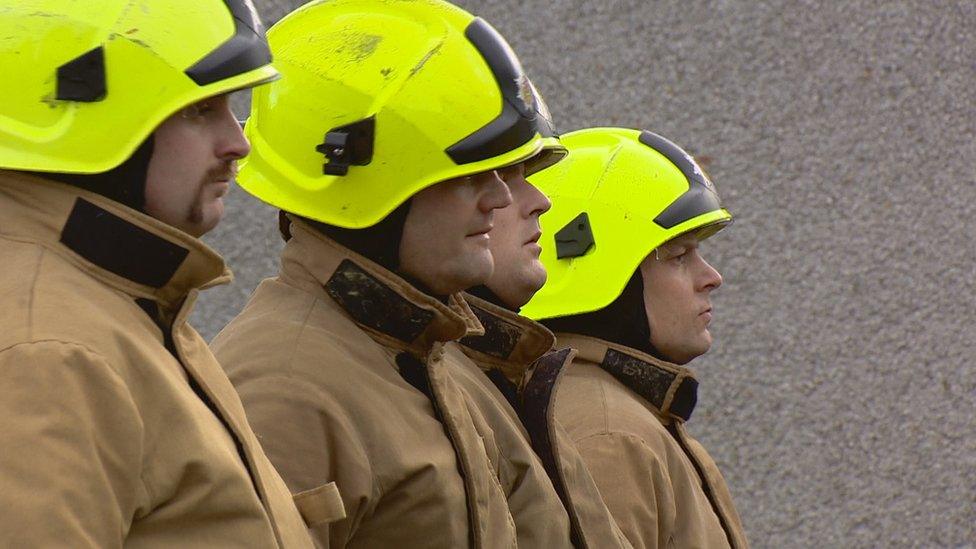
There were 7,834 staff employed by Scottish Fire and Rescue Service (SFRS) at 31 March 2017. This figure is 1% lower than in 2016
There are 700 fewer firefighters than 2013 when the fire service was merged
The number of fire stations in Scotland on 31 March 2017 was unchanged from 2016 at 356 stations
Two-thirds of all fire stations (240) are primarily RDS (retained duty system). These are mainly rural stations crewed by on-call, part-time fire officers
21% (74 stations) are full-time
12% (42 stations) are volunteer crewed

Financial challenges
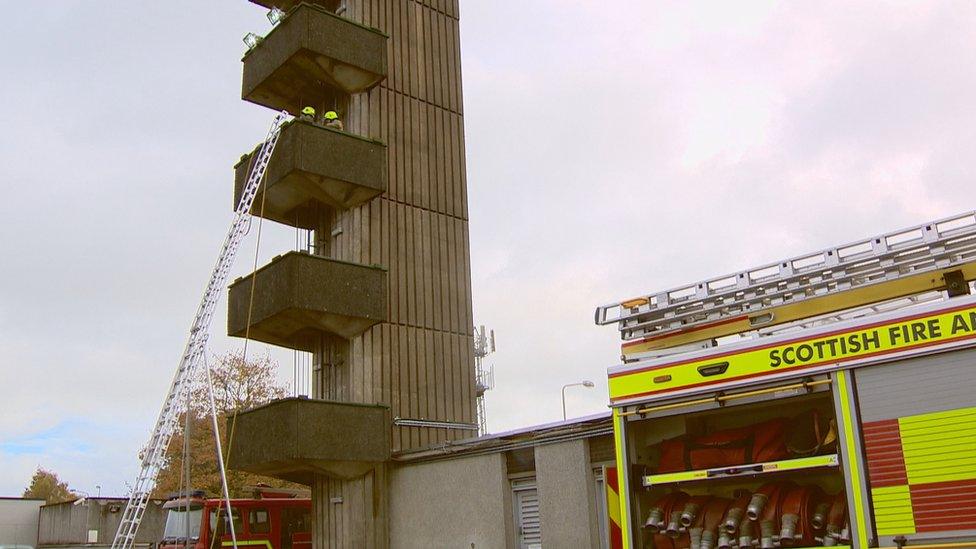
Scotland's eight regional fire services were merged into a single service almost five years ago.
Since April 2013, the SFRS, which has a budget of about £260m, has lost more than 700 firefighters and been under pressure to keep costs down.
Audit Scotland warned two years ago of a potential funding gap.
An internal fire service management document, seen by the BBC, states: "The Scottish Fire Service is operating against a backdrop of both significantly changing risks and the greatest financial challenges seen in decades."
It said the service has to "re-balance" firefighter numbers and review its "station footprint".
The document briefs SFRS managers on how to prepare staff for discussions on change.
"Staying as we are is simply not an option," it said.
Another management document, prepared as a staff Q&A, said no fire stations had yet been identified for closure.
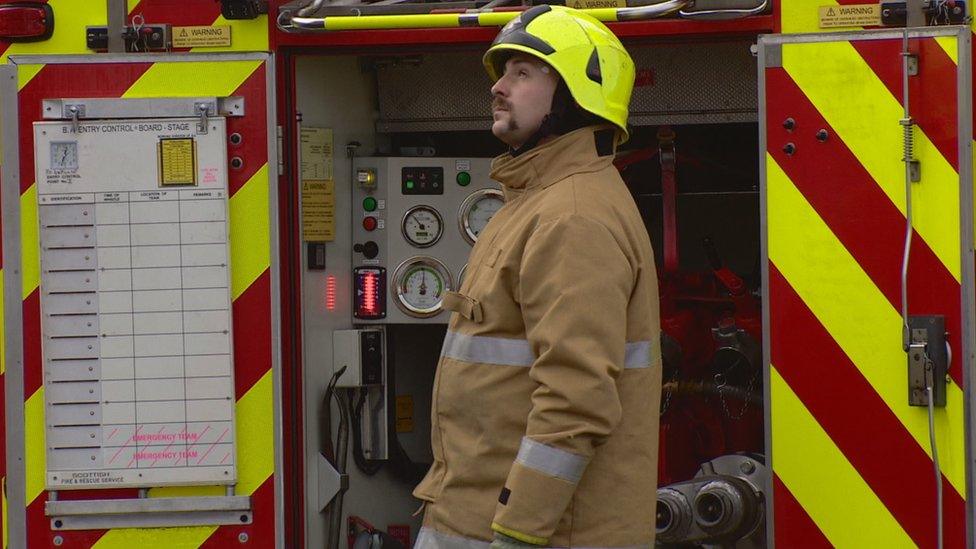
But it said they would be "predominantly in large urban locations - where certain stations have low call-outs, attend large numbers of false alarms and have a high concentration of surrounding stations, personnel and equipment".
The document goes on to talk about "more effective deployment of resources in urban areas where we have an historically high concentration of stations".
The Fire Brigades Union Scotland's Chris McGlone said: "I think what the documents show is that there are significant changes coming."
He added: "Routinely at the moment the fire service is required to remove fire engines from operational availability and that is because at the moment we don't have enough firefighters.
"In the whole-time service we think it is up to six on any given day - in the retained service it is 50, 60, 70 at times."
Mr McGlone said the Retained Duty System was no longer working because many of the local people who provided the system were working away during the day.
He said: "We are always concerned that if you remove the operational firefighters and fire appliances not as a direct response to a change in risk but for a financial reason - we will see a consequence."
Holyrood debate
In response to the BBC story, Scottish Labour MSP Claire Baker raised an urgent question in the Scottish Parliament asking for assurances that frontline services would be protected.
Community Safety Minister Annabelle Ewing told MSPs there had been no compulsory redundancies and no fire station closures since the SFRS was formed in 2013.
She said: "The Scottish Fire and Rescue Service is currently exploring how it should develop to meet the new and emerging risks facing our communities, including how transformation of service delivery could see it do more for the people of Scotland.
"No decisions have been made on what that transformation would look like and the transformation process will involve liaison and discussion with staff, partners and the public."
The minister said the Scottish government had increased the overall operational budget for the SFRS this year by £21.7m and discussions were ongoing over next year's budget.
Ms Baker said it was an "insult to firefighters" to refuse to acknowledge that job numbers had been cut.
She said: "This transformation is being forced through due to a squeeze on resources rather than an evaluation of risk and the buck stops with the justice team."
- Published19 August 2016
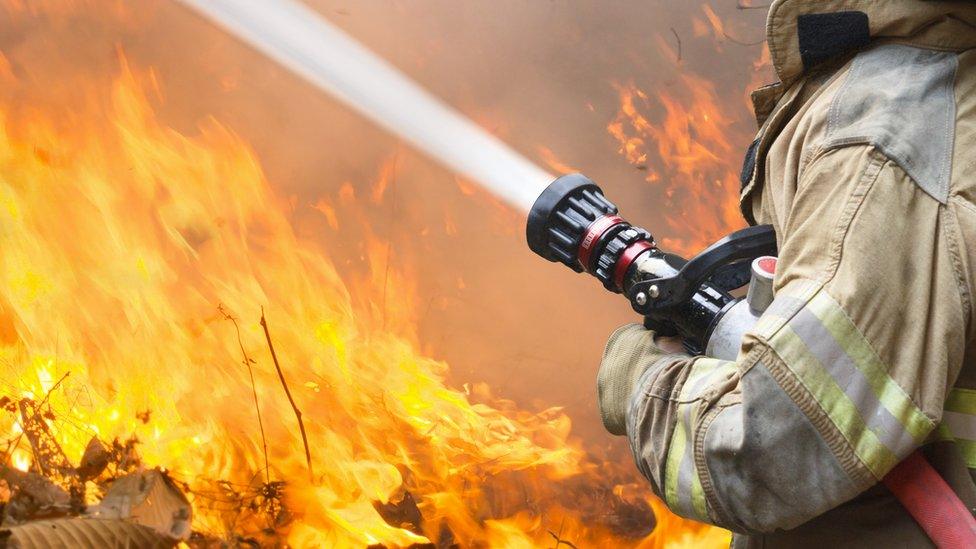
- Published1 December 2015
